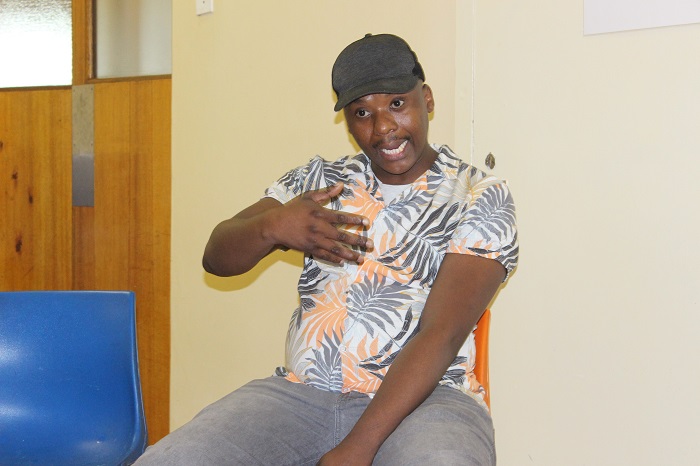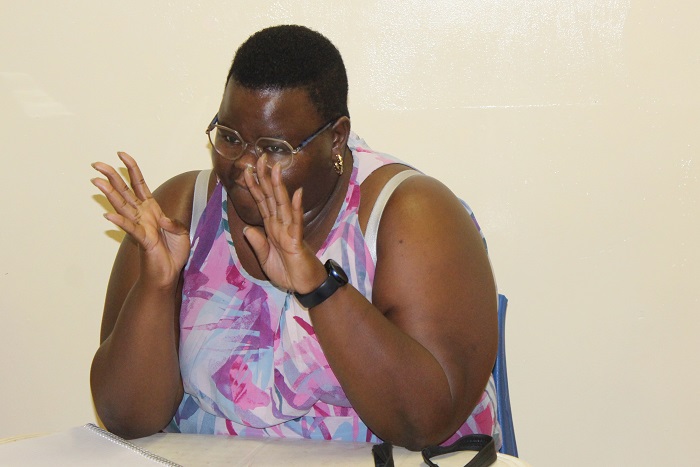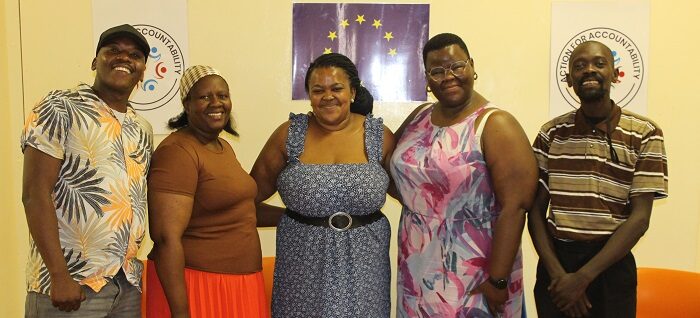By Sibabalwe Tame
An Action for Accountability project meeting was held at Duna Library on 21 April, hosted by Andile Nayika, a community facilitator from the Public Service Accountability Monitor (PSAM), and Lindokuhle Vellem, a PSAM research and advocacy analyst.
The regular meetings focus on how the municipality is delivering on development and services. “We also focus on the concepts of social accountability,” said Nayika.
The project seeks to advocate around a wide range of issues present in the community, which they have identified by going door to door and taking surveys from residents on (such as the water crisis). The project is now preparing to write up submissions on the issues residents have raised, which also include the lack of street lights in Makhanda.

Nayika said that going forward, the project will focus on one issue at a time and write a submission on that issue, in an attempt to influence the Makana Municipality to deliver. They will also do regular follow-ups with residents to monitor the progress of the municipality, and will invite the municipality to meetings where they can provide answers to residents.
“All this forms part of Action for Accountability, and that way, we are holding authorities to account,” said Nayika. He added that from now on, the project will try as much as they can to interact with, engage and challenge the authorities.
Vellem said the project would also mobilise comments on the municipality’s draft Integrated Development Plan. She said that if the draft was done properly, it would reflect the needs identified by people on the ground.

Vellem is also working on an accountability toolkit. In all their work, the project needs “to be as crisp as possible” in identifying the exact problems they want fixed, and in strengthening the communication with the municipality, she added.
“Makana is at the point where there needs to be some rejuvenation,” Vellem said. She added that people cannot continue to vote the way they have been voting, and an active civic education drive was needed.
“We as civil society cannot be doing the same thing that we have been doing over the years. If every person had an understanding of why we have these water problems, they would then understand why there has not been a housing project built in so many years,” Vellem said, adding that the reason why new housing projects were on hold was that there was no bulk water system in place that could cater for a big additional housing project. The reason a new bulk water system could not be put in place was that there was no bulk sewage infrastructure to service this.
She added that people need to understand how one problem leads to another and together, start looking at how they hold the authorities accountable.

